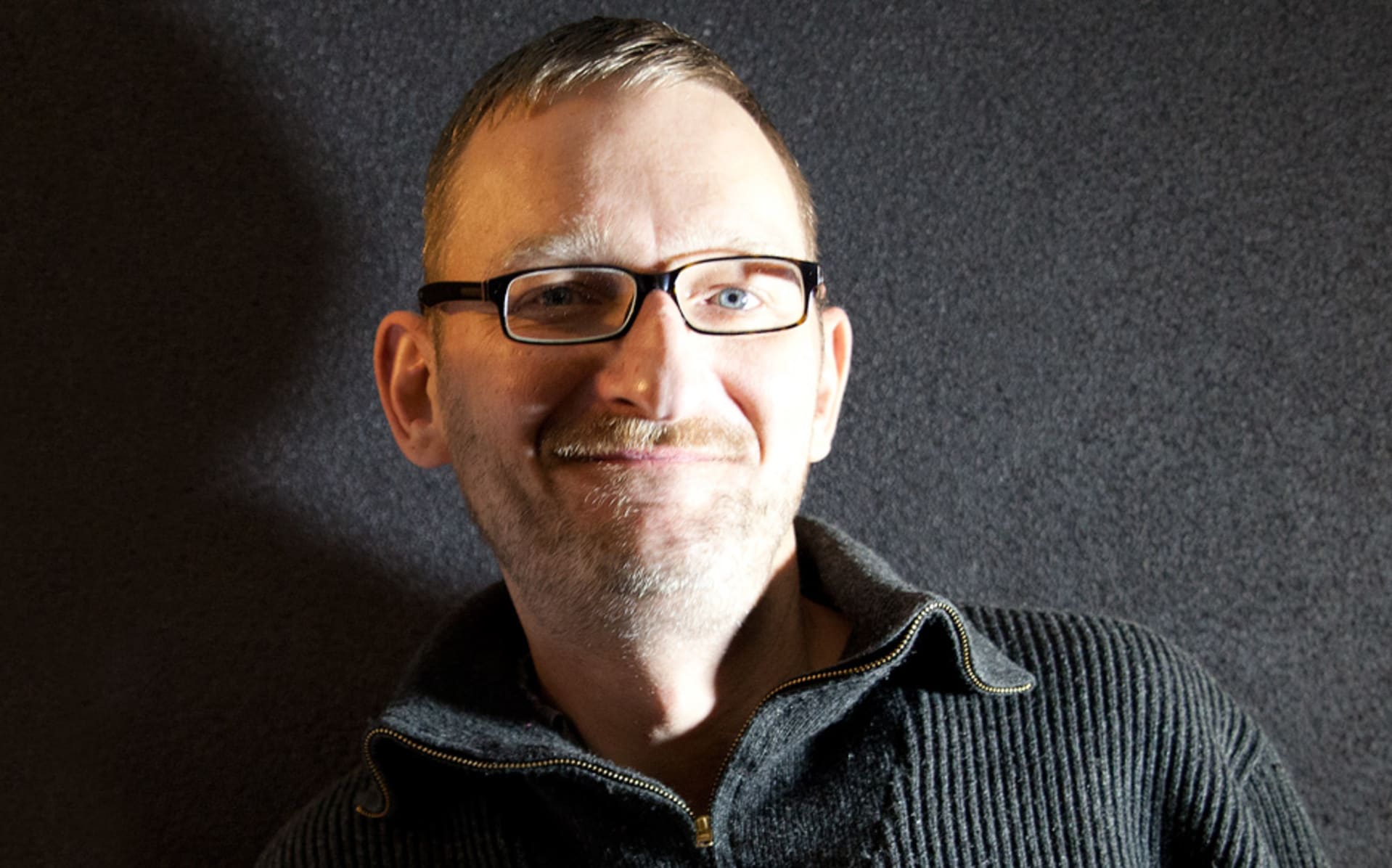
Justus Köhncke recalls his Depeche Moment
Justus Köhncke is a DJ and techno producer based in Berlin. Heavily influenced by disco, he releases music—including several albums—through the Cologne label Kompakt. Köhncke was also featured in the recent Winter issue of Electronic Beats Magazine in conversation with Hot Chip’s Alexis Taylor. Photo by Luci Lux
When Depeche Mode started out in 1981 with their debut Speak and Spell, I was just 15 years old. Me and my friends certainly liked the record and it remains a strong pop record to this day, but still we always made the joke, “Des is e deppisch’ Mood” which means something like “this is a stupid fashion” in German Mittelhessen slang. To explain: when Depeche Mode showed up it seemed like Daniel Miller had found some puppets in order to give the sound of the Silicon Teens a boy group face. However, history has proved us so wrong and I’ve been following them ever since—the band’s early material and the work of Vince Clarke has very much influenced my own work. Nowadays they are an entity for and of themselves, they made it to an eternal, ethereal state the moment they stopped reflecting what’s going on around them; it’s kind of hermetic in a way. They’re more a phenomenon than a band because they are so enduring—a bit like The Rolling Stones. Of course, the new single is called “Heaven”—they were always so wesentlich.
Switch from ‘81 to 2009, and I had the unexpected honor of being asked to do a remix for a new Depeche Mode single, which was Martin Gore’s idea. Martin’s very much into music—he once showed up at the Kompakt record store in Cologne. I was thrilled to be asked to do this and was given the tracks to work on. It was funny because this entailed the strictest non-disclosure agreement ever, the sort where you go to jail if the thing leaks. Also, everything went under a codename so the words “Depeche Mode” never showed up in the email exchanges. The codename was “Moulinex”—which I loved! What I really noticed in my role of remixer was their immense power of songwriting; I was given this single “Peace”—wesentlich, again—and while I liked it I really couldn’t relate to it, I was like, “What am I going to do with this?” It was dark and ultra fast, almost drum’n’bass or dubstep BPMs, so around the 150 mark. My working temperature is more disco house with 125 bpm being my maximum. This meant I had to take the vocals and slow them radically down to 124 BPM and, if I’m being honest, I didn’t expect it to work. However, somehow the song still functioned, I hadn’t demolished it, and best of all it didn’t sound artificial at all. For me that in itself speaks for the strength of the songwriting, and perhaps this is down to the fact that Martin Gore writes the songs on the guitar first before translating them to electronic equipment. In many ways, when Johnny Cash covered “Personal Jesus” it was a return to its original form.
Dave Gahan and Martin Gore are the match that make Depeche Mode, obviously because they’re very different characters. I went to a concert they played in Cologne when “Personal Jesus” was the big hit and was lucky enough to end up at the afterparty—plus it was Martin Gore’s birthday so it was very much a memorable night. Dave Gahan lived up to his legend that night, he was jumping on a taxi, demolishing it, throwing TV out the hotel window cliche kind of thing. The vocal tracks I got from “Moulinex” also offered proof of this dynamic from a technical standpoint. The lead singer of course was Dave and while he’s a very good and intense vocalist the track was technically very rough and dirty, with lots of leakage from headphones.The backing vocals by Martin Gore, on the other hand were pristine; you could listen to them all by themselves—pure symphony! I think that’s how the pair are, behind the scenes.
The rare occasions I get remix material from artists I really adore I always get the goosebumps, the only other occasion where I got the big goosebumps was when I got hold of the 24 tracks of Human League’s “The Things the Dreams Are Made Of”. Yes, from a technological point of view Depeche Mode have a complete sound world, but it all comes back to great songwriting. What makes great songwriting? You never can tell, but the fact that you could do so much to the parameters of a song and the essence remain the same, that’s shows you’re doing something right. I recently met Green Gartside and while Scritti Politti were known for their pastiche and sound design, Green wouldn’t even go to the studio unless he was convinced a song is perfect on a guitar and I sense Martin Gore is the same. This is what I envy because I can’t do that… I can’t even play guitar.~
Published March 13, 2013. Words by Justus Koehncke.
